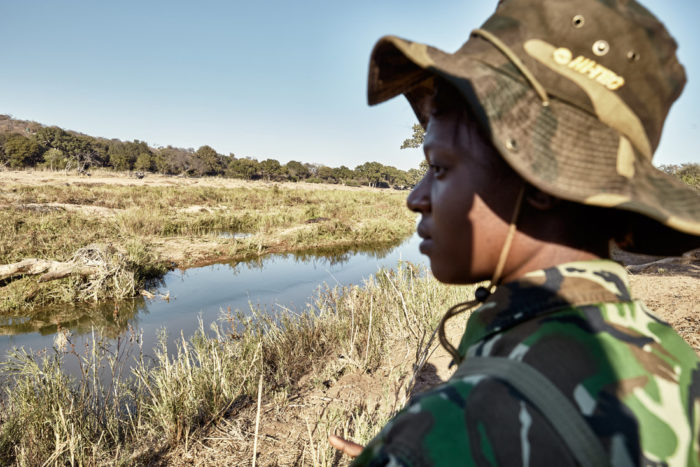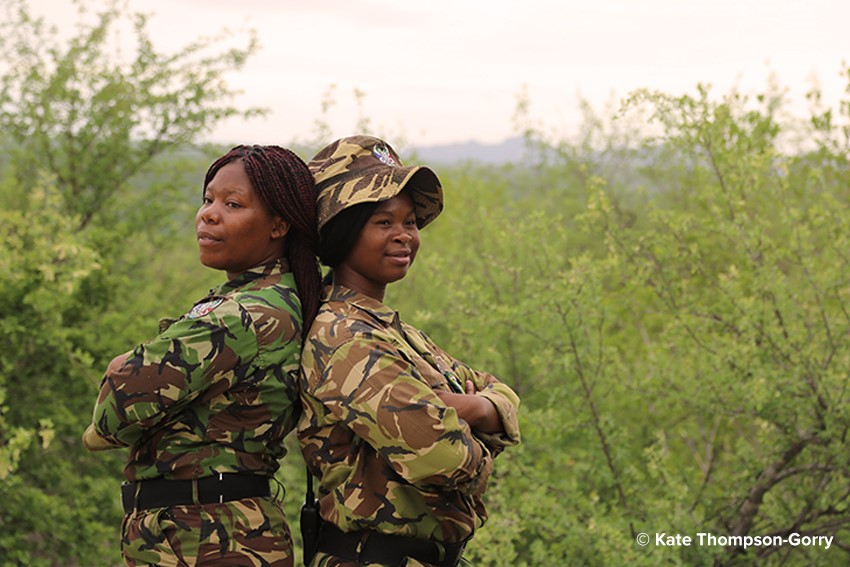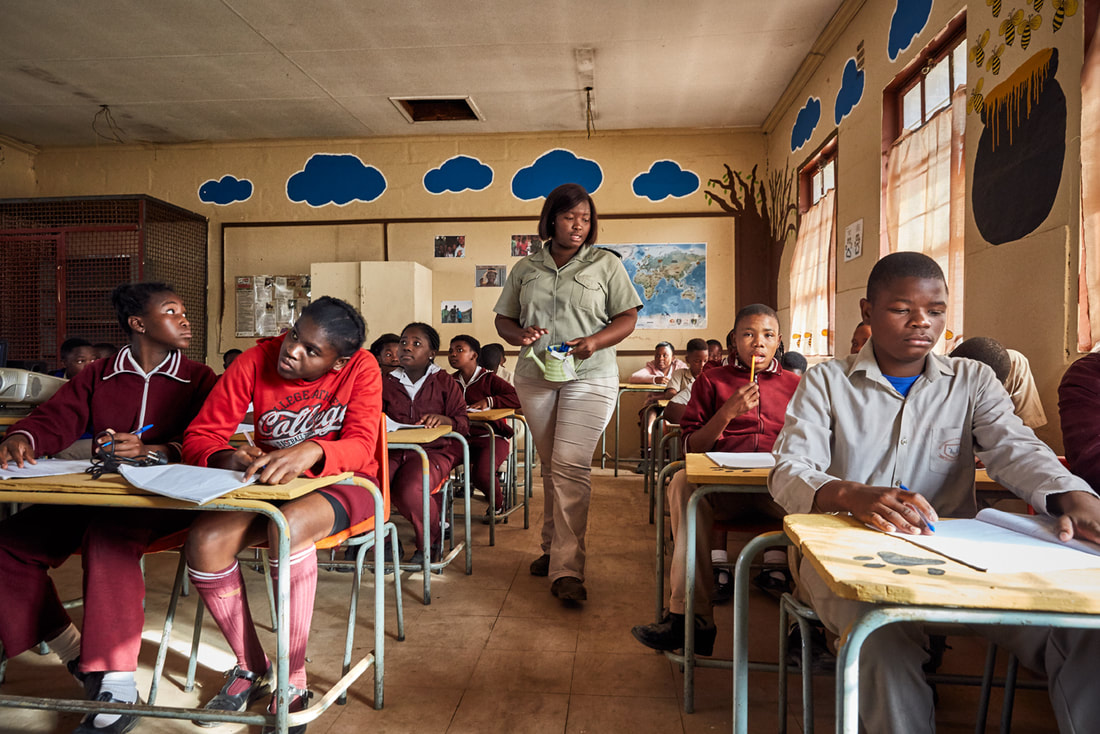 Poaching is a huge problem for African wildlife. Some species are hunted for food, whereas others, such as lions, pangolins, and rhinos, are killed for Chinese medicine. Lion bones, pangolin scales, and rhino horns are much prized, despite the fact that the ‘medicines’ made from these ingredients have no proven scientific benefits. Many species, such as the Western black rhino, have already been driven to extinction this way. Countless more are endangered.
Poaching is a huge problem for African wildlife. Some species are hunted for food, whereas others, such as lions, pangolins, and rhinos, are killed for Chinese medicine. Lion bones, pangolin scales, and rhino horns are much prized, despite the fact that the ‘medicines’ made from these ingredients have no proven scientific benefits. Many species, such as the Western black rhino, have already been driven to extinction this way. Countless more are endangered.
It’s a bleak picture, but since 2013, one inspirational group of women has been fighting back. The Black Mambas—aptly named after a highly venomous snake—are an anti-poaching unit which was started in 2013 by the organization Transfrontier Africa. They protect the vast 52,000 hectare Balule nature reserve in South Africa. The unit is special because other than its founder, Craig Spencer, it is made up entirely of young women. The Black Mambas were the first all-female anti-poaching unit in the world.
A force to be reckoned with
Perhaps the most surprising thing about the Black Mambas is that they patrol unarmed. They use tactics which don’t directly harm poachers—part of their strategy involves finding and destroying snares and poachers’ camps, for example.
Observation is also key—the Black Mambas patrol the boundaries of the reserve at dawn and dusk, searching for suspicious activity. They look for poison at rhino water holes, stage roadblocks to check for anything suspicious in vehicles entering the reserve, and search premises within the reserve to make sure the anti-poaching rules aren’t being broken. Since the Black Mambas are unarmed, they contact special forces to deal with any poachers they find.

Their strategies have proved hugely effective: poaching in the Balule nature reserve has declined by up to 76% since they began their work in 2013. Despite the dangerous nature of the work—the team encounters lions, elephants, and other wild animals, as well as armed poachers—there haven’t yet been any casualties.
A man’s job?
Many in South Africa consider these activities to be men’s work, but the Black Mambas’ success suggests otherwise. The women are well-prepared for the role, having all undergone three months of rigorous training before starting work. During the training, they must get into good shape physically and learn survival skills. They also learn other skills required for the work, like surveillance.
Empowerment
Many women in South Africa struggle to get the same education as men, and sexism is still prevalent in the country. Finding work can be challenging, and it’s made harder by the fact that the South African economy is not strong. A high percentage of the population is unemployed.
The Black Mamba project allows women to learn valuable skills and make a dignified living. They are proud of the work they do and respected in their communities. Many of the women are mothers, and they are often the breadwinners of their families too. Some also take care of parents or other family members.
More than anti-poaching
The Black Mambas aren’t just fighting poaching on the ground: they are also educating the communities around the Balule nature reserve about poaching and the environment. The unit has an education officer who goes into schools to teach children about conservation, sustainability and other environmental issues. The idea is to create a culture which respects wildlife and the planet; this, it is hoped, will discourage younger generations from taking up poaching. In the long run, this education may just be the most effective way of making a lasting change.

A long way to go
The acceptance and respect shown for the Black Mambas in their communities makes it clear that the tide is turning in terms of attitudes to poaching – and attitudes to women, too. But there’s still much to be done, and there have been some frustrating setbacks. Selling rhino horn was legalized again in 2017, for example, leading to an increase in poaching.
And although the Black Mambas are protecting the Balule nature reserve, much of the African wilderness is still vulnerable. But promisingly, similar programs are springing up elsewhere. In Zimbabwe, for example, a conservation model called Akashinga is being used to protect the Phundundu wildlife area. It involves recruiting disadvantaged women to fight poaching, and giving them the same training as male rangers. This helps to alleviate poverty and protect wildlife at the same time. And even better, the program is all-vegan, in recognition of the damaging impact of animal agriculture on the planet.
Also by Bethany: “World’s Greenest Restaurant” Has Been Named—In A Vegan, Zero-Waste School In California
Despite Deforestation, The Planet Is Getting Greener. Here’s Why
Get more like this—Sign up for our daily inspirational newsletter for exclusive content!
__
Photo: The Black Mambas




